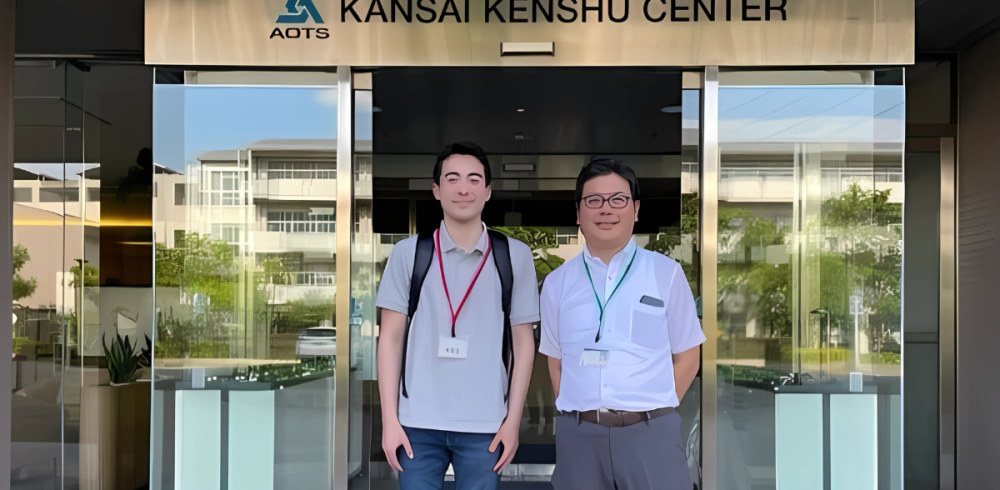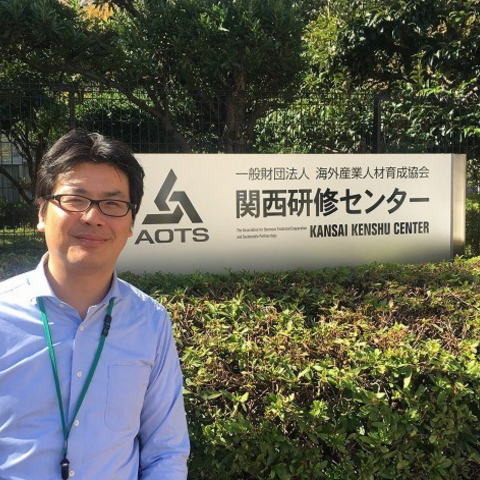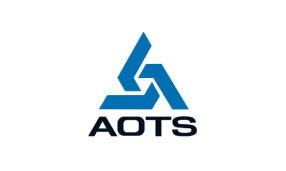【インターン日記】人材育成で日本と海外をつなぐ。さらなるDEIの実現に向けた取り組み

株式会社クオリアでは不定期にインターンの受け入れを実施しています。2024年7月から1カ月間インターン生として受け入れたのは、アメリカ合衆国出身の大学3年生、Richard Kazuyoshi Ferris(リチャード・和良・フェリス)さんです。2年前に海外からのリモートインターンとしてクオリアで働き、クロスロードダイバーシティカードの英語版作成に関わっていただきました。その際にDE&I(ダイバーシティ・エクイティ&インクルージョン;以下DE&I)やアンコンシャス・バイアスという言葉に出会い、強い関心を持つようになり、今回は来日してのインターンを行うことになりました。
イベントの準備やeラーニングの翻訳チェックなどに加え、DE&Iの実現に向けて多様な分野で活躍をされている方々6名へのインタビューを行いました。その内容をまとめ「インターン日記」と題して紹介します。
第1回目は一般財団法人 海外産業人材育成協会(AOTS)竹内祐輔さんとのインタビュー内容を掲載いたします。
(Kazuさんの作成したインタビュー記事を基に、日本語訳を補完しています)
Qualia Inc. has been accepting interns, and this time we welcomed Richard Kazu Ferris, a third-year university student from the United States, for a one-month internship starting in July 2024. Kazu san had previously participated in a short-term remote internship at Qualia and expressed interest in DEI (Diversity, Equity, and Inclusion) and unconscious bias. Based on this interest, he decided to join us for a month-long in-office internship.
In addition to various tasks, we asked Kazu san to interview individuals who are actively working to realize DEI. We will be serializing these interviews as "Intern Diaries" in a total of six installments.
竹内 祐輔(たけうち ゆうすけ)様プロフィール

一般財団法人 海外産業人材育成協会(AOTS)
関西研修センター 研修実施グループ 主任
2006年財団法人海外技術者研修協会入職。企業経営、工場管理等に関する研修プログラムを企画・実施する研修コーディネーター。海外人材の日本招へいや日本人学生のインターンシップにも携わる。
クオリアでは2024年に主催、ATOS様主催の中南米向け組織活性化のためのマネジメント研修コース(LAOR)内で『ダイバーシティマネジメント』をテーマに、登壇いたしました(詳しい記事はこちらからお読みください)。
そのご縁もあり、インターン生からのインタビューをお願いしたところ、ご快諾いただきました。この場を借りて、竹内様に、海外産業人材育成協会様に厚く御礼申し上げます。
一般財団法人 海外産業人材育成協会(AOTS)

一般財団法人海外産業人材育成協会(AOTS)は、主に開発途上国の産業人材を対象とした研修および専門家派遣等の技術協力を推進する人材育成機関です。
AOTSの研修センターは、東京研修センター(東京都足立区)、関西研修センター(大阪市住吉区)の2か所にあります。今回は関西研修センターへKazuさんがお邪魔して、竹内様にお話を伺いました。
大学卒業後すぐに海外での挑戦を決める。AOTSに出会うまでのキャリアについて
最初に現在の仕事との出会いについて伺いました。大学卒業後にすぐに海外で働くことを考えていたそうで、いくつかの民間企業から内定をもらった中からカナダのオタワにある日本大使館で働くことになり、2年間非常勤で後方支援の仕事を担当していました。
その後、経済産業省や農水省などの関係者と知り合う中でAOTSの存在を知り、AOTSの仕事に興味を持つようになりました。AOTSのことをより詳しく調べていくうちに「ここで働きたい」と2000年に入社し、今年で24年になるそうです。
大学在学中に留学する人は多いですが、卒業後すぐに海外で働きたいと思うのは、特に日本では珍しいのではないかと感じました。キャリアのスタートでは、挑戦をするよりも自分が長年生活をした国で仕事をしたいと考える人がほとんどだと思います。私自身、同じことを実現しようとすると必要な準備をするのに難しいと感じます。この「すぐにでも海外で働きたい」という思いは、竹内さんの強い意志の表れであり、とても刺激になりました。
From Campus to Global Stage: A Journey to AOTS
First of all, I asked him how he came across his current job.
He graduated in 1998, and at that time, he wanted to work abroad, immediately, without any sort of waiting period. He got job offers from some private companies, but decided to take a position at the Japanese embassy in Ottawa, Canada.
For 2 years, he did this part-time job at the Japanese embassy in Canada. He did logistical work.
He then came to know some people from the Ministries of Economy, Agriculture, etc., and talked with them and came to know about AOTS’s existence. He became very interested in this company. He decided to look into AOTS some more, and eventually decided to take the job there. It has been around 24 years since he has joined, as he joined in 2000.
Wanting to work abroad immediately after graduation, especially in Japan, I think is quite rare. I think that most people might study abroad while they are attending university, as the university could help them out. I would also assume that most people would want to work a safe job in their country at the beginning of their career. I, myself, would struggle to set up the necessary preparations to make something like this happen. This desire to immediately work abroad, to me, greatly shows Takeuchi san’s determination and is very inspiring.
ものづくりのスキルだけでない、AOTSの教育プログラム
次にAOTSが提供しているプログラムについて伺いました。
このプログラム(※)は、海外、特に開発途上国から日本にきた研修生をリーダーとして育成し、日本で得たモノづくりのスキルなどを自国に帰って活かしてもらおうというものです。
日本ではこれまで長期雇用という考え方が浸透していましたが、最近の日本の若い世代では、多くの人が短い期間に仕事を変えるようになっていると聞きました。 日本で研修を受ける研修生の方たちは自国に帰ってからも同じ会社で長く働いてもらいたいという想いを受入会社はもっています。
※AOTSでは掲載している他さまざまな対象や方法での研修機会を提供しています。
参考:https://www.aots.jp/hrd/
通常日本の企業が開発途上国の拠点から技術者などを日本に呼んで研修を実施する場合は多額の費用がかかりますが、AOTSの国庫補助事業ではこの研修費用の一部をサポートしています。しかしそれでも人材育成には多くの費用がかかるため、企業にとっては投資であり、研修生が重要な技術やノウハウを教わり、母国へ帰ってその企業で長く働くことを期待しているのです。
また、AOTSには受入企業での技術研修の前の導入研修として日本で円滑で安全な生活を送るためのプログラムもあるそうです。日本で生活する上で知っておくとよいマナーやゴミの分別の仕方など、日本での日常生活に必要なことを伝えているそうです。強制的に日本を好きにさせるのではなく、日本での基本的なルールを教えることで、快適かつ安全に生活できるようにすることを目的としています。
竹内さんはこうした研修プログラムの研修の開発や、運営を行いながら企業や研修生とコミュニケーションをとり、彼らに最適な研修の機会を提供しています。
More Than Just Making: Exploring AOTS' Holistic Approach to Education
Next, I asked about the programs offered by AOTS.
In this program*, the idea is that the other countries send workers here to develop them, and raise the person as a leader in Japan, and then they will go back to their country.
The idea of long-term employment is very prevalent and expected in Japan, but more recently, in younger generations, younger than me, many are starting to change jobs more frequently. Companies that acccept the workers expected to work long term when they go back to their countries.
*AOTS offers various educational opportunities for a wide range of people and through different methods.
Today, as the first installment, we will share the content of his interview with Mr. Yusuke Takeuchi of the Association for Overseas Technical Cooperation and Training (AOTS)
But the companies that are using this program at AOTS are expecting long-term commitment from the workers because this program is very expensive. The Japanese government gives a subsidy of about 50%, or half, of the total cost, so it is still expensive. This means that it is an investment for them and that they are expecting the engineers to go to Japan, get taught important techniques and know-hows for manufacturing, and then go back to their country and work for the company for a long time.
Further to his story, I heard that there is also a training program here that teaches how to live smoothly or safely in Japan. There are social rules that are important to know to live in Japan, and so the program teaches those taking it how to behave, or how to get through a typical day in Japan, by teaching them things such as how to sort garbage, etc.
The intention is not to force them to like Japan, but more to teach them the basic rules to know in Japan, so they can live comfortably and safely.
He helps run these programs, and helps with communicating with the companies and trainees, and with communicating with the governments to develop the most appropriate training programs for the participants.
長年、多様な国の研修生を育成してきたAOTS。研修生に対する竹内さんの思い
例年、このプログラムには、関西センター100名ほど参加しています。また、横浜市と豊田市を含め4つあったセンターは、現在関西センターと東京の本部の2つになり、上記のプログラムを含め様々な研修プログラムで年間約2,500名程度が来日して学んでいます。1959年以来、AOTS全体で20万人以上の研修生を受け入れてきたと教えてくださいました。
また、どの国の人が多く参加するのかも聞いてみました。
現在、センターが最も多くの人々を受け入れている国は開発途上国で、その多くはベトナムやタイなどアジアの国からきています。彼らはものづくりの製造技術やコンピュータソフトウェアの設計、開発など、より高度な技術を学ぶためにAOTSのプログラムに参加します。
AOTSのプログラムを受ける場合、企業に雇用されていること、大学を卒業していること、軍隊に所属していないことなどが条件となるそうです。また、AOTSでは6週間や13週間にわたる日本語のクラスがあるため、これまで日本語を学んだことがない人でも参加することができます。AOTSで教わる日本語は研修生がこれまで日本語を勉強したことがない場合はごく基本的なものですが、日本で生活していくには十分なもので、例えば、買い物に行くことができるようになると聞きました。
竹内さんはAOTSのプログラムに参加する人たちには、技術、経営、技能などを学んでしっかりと持ち帰ってもらいたいと考えていると話してくださいました。
Takeuchi san’s Passion: Cultivating Global Talent at AOTS
Next, I asked about the people who participate in this program each year during the year.
Over the course of a typical year, he thinks that the Kansai Center receives around 100 people. However, that number is decreasing. There used to be 4 centers, but now it is down to 2: the Kansai Center and the headquarters in Tokyo. The Yokohama and Toyota City centers were closed down, so the two current centers would have about 2,500 people per year. Since 1959, the center has trained more than 200,000 people.
I also asked which countries are most likely to participate.
The countries that the center currently receives the most people from are developing countries, the top countries being Vietnam and Thailand. They come to AOTS to learn more advanced skills such as computer designing, and development.
If one wanted to be taught at AOTS, they would, in most cases, have to be a university graduate and would have to not have been a part of any military services. For the language spoken, AOTS teaches basic Japanese from over 6 weeks to 13 weekes, so it does not matter the language that those who go to AOTS speak. The Japanese taught would be very basic, but it would allow them to survive in Japan. For example, it would allow them to go shopping and do things like that.
He wants those who come to use the programs at AOTS to be able to learn technological, management, and technical skills that they can bring home with them.
竹内さんの見る日本のDEIの現状と外国人労働者をめぐる労働環境
竹内さんに日本のDE&Iについて伺いしました。日本は、数十年前は非常に男性中心の社会だったそうですが、現在は、人手不足の問題もあり女性、外国人、障がいのある人、その他あらゆる人々の助けが必要なのだ、と言います。
日本はかつて、自分たちと異なった文化を持つ人の価値観を受け入れることに非常に消極的だったけれど、考え方は少しずつ変わり、異なる価値観を受け入れるようになってきていると感じているようです。
また、日本のDE&I推進において外国人労働者が直面している課題についても聞きました。日本では200万人以上の外国人が工場で働いています。小さな町の小さな工場に行くと多くの外国人の労働者が働いていることに気づくでしょう。
DEI and the Working Environment for Foreign Workers: Insights from Mr. Takeuchi
I asked him what he thought about DE&I in Japan.
He explained that, when it comes to DEI issues in Japan, until very recently, Japan has been a very masculine-focused society. However, due to a lack of manpower, Japan cannot rely on only men to be able to sustain the current society. Japan needs the help of females, foreigners, physically and mentally disabled people, and all other sorts of people, he said.
Japan used to be very reluctant to accept other peoples’ ways of thinking. It is still at a small level, but he believes that Japan’s way of thinking is slowly changing to be more accepting of other peoples’ opinions.
Then, I heard about the challenges faced by foreign workers in Japan's efforts to promote diversity, equity and inclusion. He mentioned that if you were to go to a small factory in a small town, you will find many foreigners working there. Over 2 million foreigners are working in factories in Japan.
DE&Iと丁寧に向き合い続ける竹内さん。AOTSでの実現に向けて
さらに、AOTSにおける女性の働く環境や男性の育児休暇取得についてもお聞きしました。
AOTSでは女性管理職は多く、女性取締役もいるようですが、女性理事長はまだいないそうです。また、AOTSの社員は男女半々かやや女性が多く在籍しています。女性が出産した場合、比較的容易に産前産後休業を取得できるそうで、さらに、通常男性は子どもができても休暇を取ることが難しいそうですが、AOTSでは取得しやすい環境があります。竹内さん自身、10年ほど前に6カ月の休暇を取ったことがあるそうです。
私は調べてみて驚いたのですが、有給育児休暇に関しては、アメリカは日本より遅れているかもしれません。いくつかのサイトによると、日本の父親が取得可能な有給育児休暇は、30週間でトップでした。アメリカの有給育児休暇は1週間未満となっています。アメリカでは父親が育児休暇を取ることは一般的ではありませんが、日本と同様に状況が少しずつ変わっているものと思っていました。
近年、DE&Iは多くの人が耳にしている言葉ですが、エクイティ(公平性)についてはまだあまり知られていない、と竹内さんは感じているそうです。竹内さん自身も、クオリアの代表取締役である荒金さんを通じてエクイティやアンコンシャス・バイアスについて学び、今も常に学びの最中です。アンコンシャス・バイアスは日ごろから人と話をするときには意識をするようにしており、自身の発言でアンコンシャス・バイアスが出たときには、発言を見直して今後のために心に留めておくようにしているそうです。
竹内さんはDE&Iを学べる環境に身を置けていることはとても幸せなことだと考えていました。これからも竹内さんが学び続け、より良い社会を作るための活動を続けていくことを応援したいと感じました。
AOTS's Commitment to DEI: Insights from Mr. Takeuchi
Following that, we explored the issues surrounding women's employment and men's participation in AOTS.
He explained that, when it comes to female working conditions and male childcare leave, AOTS is better than many companies. There are many female managers and some female directors, but there is no female president, yet. The employees working at AOTS are about half male and half female, or maybe slightly leaning towards more females than males.
If a female were to have a child, it would be very easy for them to take maternity leave. It is harder for males to take leave when they have a child, but it is easier at AOTS, he explained. He, himself, took 6 months off about 10 years ago.
I was surprised to learn, after looking into it, that the United States seems to be behind Japan when it comes to paid paternity leave. According to zippia.com, Japan ranks #1 when it comes to offering paid paternity leave with an average of 30 weeks of paid leave. This is compared to the United States who seems to have an average below 1 week of paid leave and less than 1% pay rate. It is uncommon for fathers to take paternity leave in the U.S., but I had assumed that the times were slowly changing in regards to this, alongside Japan.
Diversity, equity and Inclusion are concepts that many people are aware of, but less people are aware of the concept of Equity, he explained. He, himself, learned about it through Arakane san, the President of Qualia Inc., and is still constantly learning more about Equity and Unconsicous Bias. He tries to be sensitive when talking to others, keeping Unconscious Bias in mind, and when the Unconscious Bias does come out, he reviews what was said and keeps it in mind for the future.
He believes he is very lucky to be able to be in an environment where he can learn about DEI.We would like to support Mr. Takeuchi as he continues his learning and continues his activities to make a better society.
インタビューしたインターンの感想
竹内さんは、質問に丁寧に話してくださり、インタビューはとてもリラックスした楽しい時間でした。私は彼からビジネスについても多くを学ぶことができました。彼の膨大な専門知識と洞察力を、その場にいて彼の話を直接聞いたのと同じように、この記事でも伝えることができたらと思います。
I found my interview with Takeuchi san to be very relaxing and enjoyable, as Takeuchi san would effortlessly bounce off my questions and speak in great depth on the simple questions I would ask. He is very knowledgeable about his area of work, and I learned a lot about this side of business from him. I greatly enjoyed this experience, and hope that I was able to word his answers in a way that conveyed his vast expertise and insights in a way that is as interesting to read as it was for me to be there listening to him in person.

